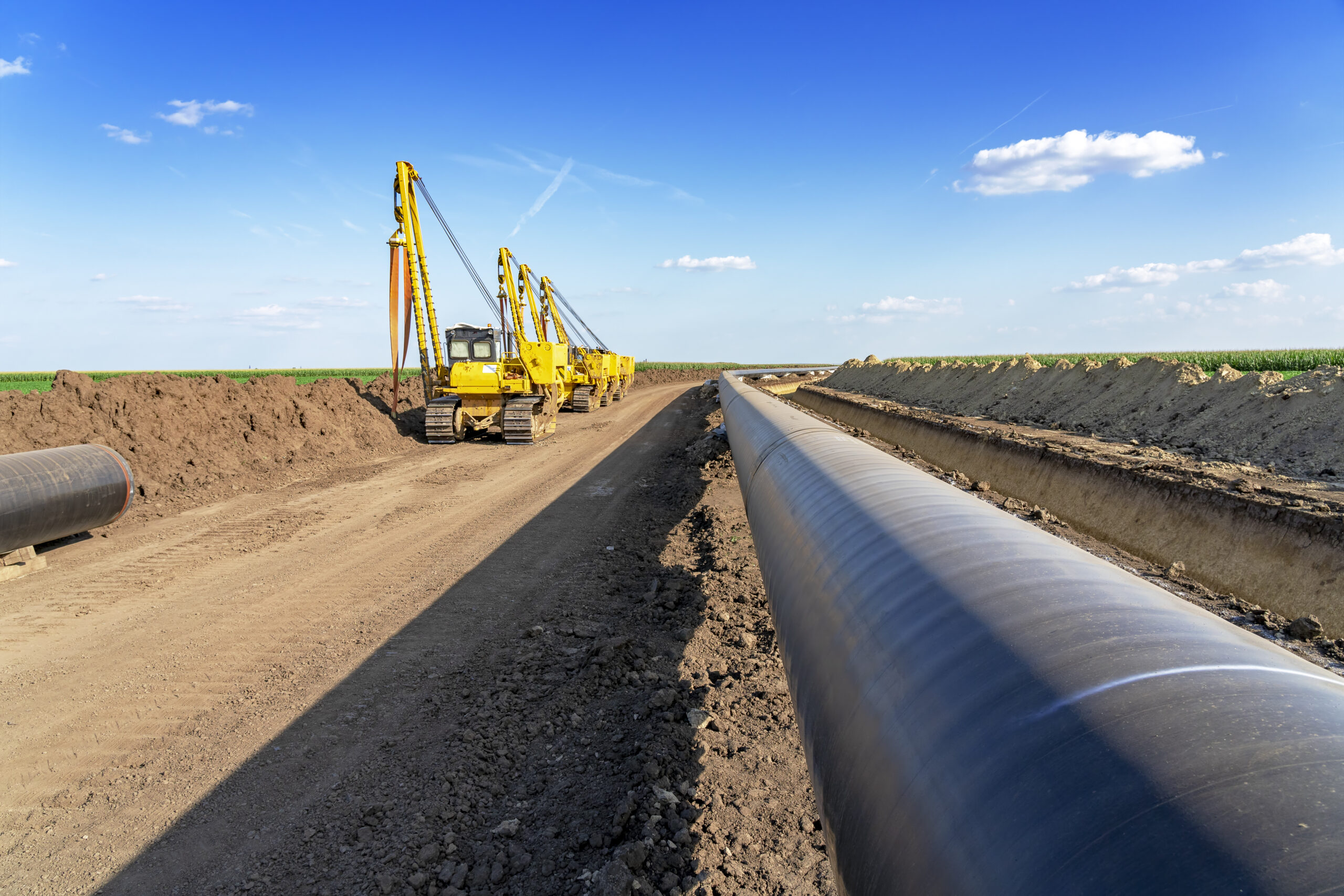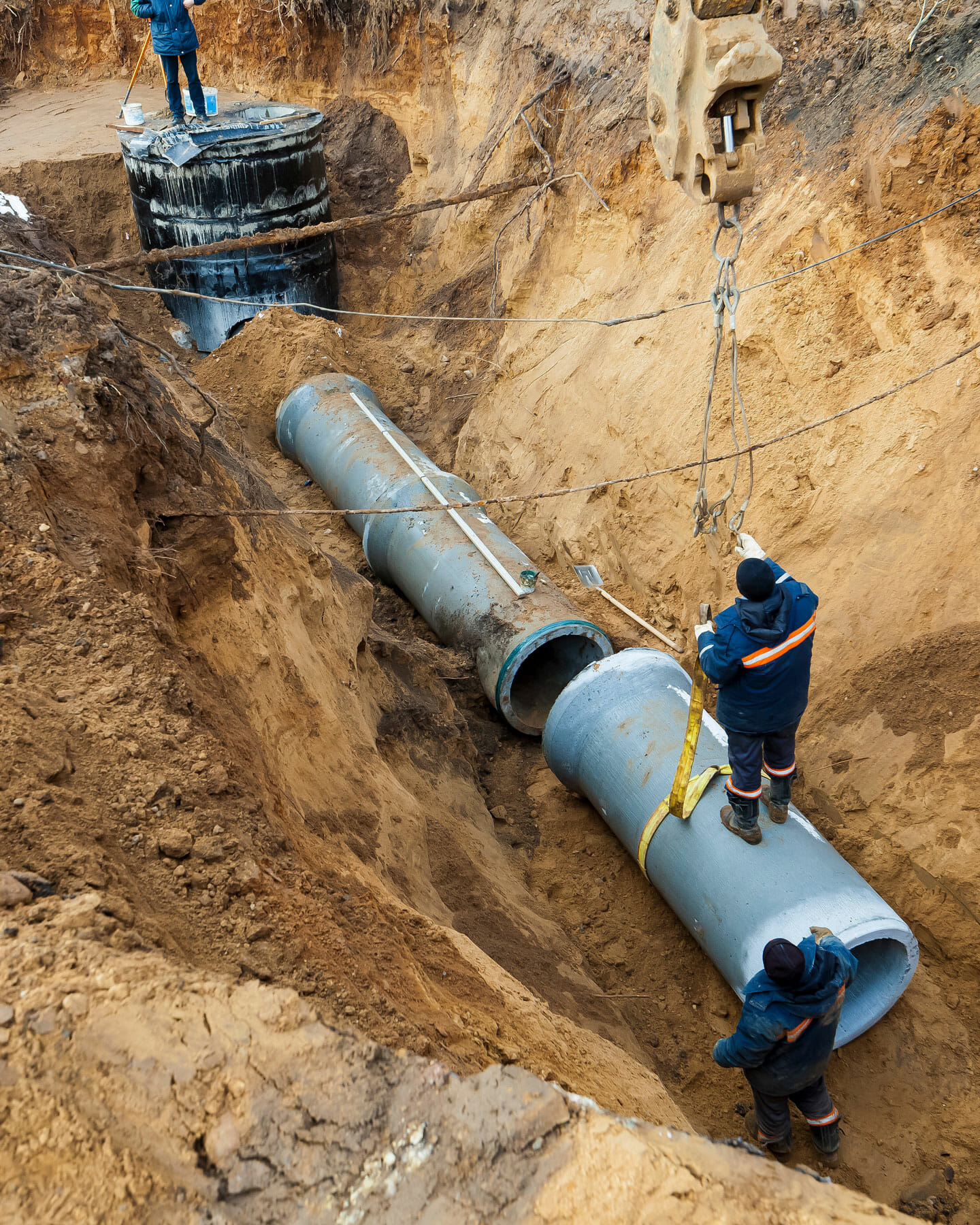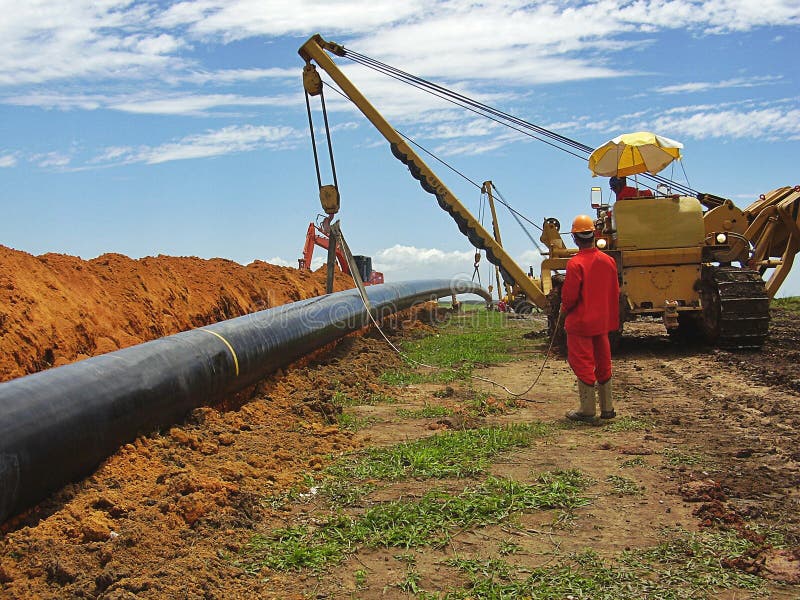Smart Engineering Decisions with Pipeline Construction Excellence
Wiki Article
Why Pipeline Construction Is Essential for Power Infrastructure Development
Pipeline construction plays a critical function in the advancement of power infrastructure, serving as the backbone for the transportation of vital resources like oil and all-natural gas. This complex network not just promotes effective distribution however also bolsters financial growth via task creation and local investment. Furthermore, improvements in security innovations are resolving ecological problems, positioning pipelines as a cornerstone of sustainable energy approaches. The complexities bordering pipe jobs raise important inquiries about governing structures and their long-lasting influence on neighborhoods and communities. Discovering these measurements exposes a multifaceted narrative that necessitates careful consideration.Function of Pipelines in Energy Supply
The critical duty of pipelines in energy supply can not be overemphasized, as they serve as the foundation of modern energy framework. Pipelines are crucial for the effective transportation of different forms of energy, including oil, natural gas, and refined items. They promote the motion of these sources from removal sites to refineries and circulation centers, guaranteeing that energy gets to customers in a timely manner.The construction of pipelines involves meticulous planning and adherence to governing standards, mirroring the intricacies of the energy market and ecological factors to consider. Reliable pipeline networks are designed to lessen transit times, reduce expenses, and improve safety and security, while also resolving potential ecological impacts. The capability to transfer big volumes of power over lengthy distances makes pipelines a preferred selection for power business looking to enhance their supply chains.Moreover, pipelines add to power safety and security by branching out supply routes and resources. As worldwide energy needs fluctuate, pipelines make it possible for regions to access numerous energy materials, mitigating risks connected with reliance on solitary resources. This diversification cultivates affordable pricing and stabilizes markets, which is essential in an increasingly interconnected worldwide economy.In addition to their logistical benefits, pipelines support local economies by producing tasks throughout construction and maintenance stages. The presence of a robust pipe facilities additionally draws in financial investments in power jobs, even more boosting regional development. Ultimately, pipelines are indispensable to the power field, offering a reliable and effective methods of transportation that underpins financial development and sustainability.
Advantages of Efficient Transportation
Efficient transportation through pipeline systems offers substantial benefits, consisting of minimized transport expenses and enhanced delivery rate. These benefits not only improve the total business economics of power distribution however additionally play an essential role in reducing the environmental impact related to energy transportation. As power demands remain to increase, the significance of enhancing transport methods comes to be increasingly apparent.
Reduced Transportation Prices
Minimized transport costs represent a noteworthy advantage in the domain of energy facilities development. The construction of pipelines offers an extra financially sensible means of transferring power sources compared to different methods such as trucking or rail transportation. Pipelines, once developed, enable the continual flow of oil, gas, and various other products over cross countries with minimal functional costs.One of the primary reasons for decreased transportation costs is the performance of pipeline systems. They can transfer huge volumes of materials simultaneously, thereby spreading dealt with expenses over a greater amount of product. This bulk transportation capability significantly decreases the price per device, making energy sources much more economical for consumers and companies alike.Additionally, pipelines minimize the threats and prices related to handling and keeping volatile materials. Unlike rail or roadway transportation, which can sustain delays and damages, pipelines provide a more secure and a lot more consistent approach of energy conveyance. This dependability enhances the financial usefulness of energy jobs, allowing for far better rates frameworks in affordable markets. Eventually, decreased transportation prices promote a more sustainable power sector, advertising broader access and encouraging investment in further development.Improved Delivery Speed
Pipelines considerably improve shipment speed in power transportation, supplying a vital advantage over standard methods such as trucking or rail systems. The constant flow of materials with pipelines permits a constant and effective transport process, reducing delays connected with loading and discharging. This consistent motion is specifically important for energy resources, where demand can rise and fall rapidly.Moreover, pipelines can run all the time, untouched by website traffic conditions or weather-related disturbances that can hamper roadway or rail transportation. This reliability ensures that power products reach customers swiftly, sustaining functional demands and boosting financial security. Additionally, the scalability of pipe systems assists in the handling of big quantities of energy, which is crucial for satisfying the growing needs of industries and property sectors.Furthermore, the combination of advanced surveillance and control technologies in pipe systems boosts the distribution procedure. These innovations permit real-time monitoring of flow rates and system pressures, assuring that any kind of prospective concerns are addressed promptly. Generally, the boosted shipment rate provided by pipelines is a considerable aspect in enhancing energy facilities and assuring that supply chains stay durable and responsive to market needs.Ecological Impact Factors To Consider
The advantages of swift power transportation prolong beyond logistical benefits; they additionally encompass considerable environmental factors to consider. Efficient pipeline systems enable the transportation of energy resources with marginal disruption to environments compared to alternative techniques such as truck or rail transportation. Pipelines can facilitate the movement of oil, gas, and other materials in an extremely concentrated manner, which lowers the carbon footprint related to power distribution.Moreover, pipelines are developed with advanced security and tracking modern technologies that substantially reduced the danger of spills and leakages. An efficient pipe infrastructure decreases the demand for constant transportation tasks, which can bring about decreased greenhouse gas exhausts in time (Midland Pipeline Construction Authority). The capability to move power resources directly to consumers decreases dependence on even more contaminating transport techniques, additionally benefiting air quality.In enhancement, strategic pipe placement can aid maintain sensitive habitats by complying with existing hallways, thereby minimizing the influence on wildlife and natural landscapes. Generally, the construction of pipelines not just supports power facilities advancement however likewise gives an environmentally responsible ways of delivering energy, adding to a much more sustainable futureEconomic Effect of Pipeline Projects
The economic impact of pipeline tasks extends past plain transportation effectiveness, considerably affecting local and local economic climates. These efforts produce task opportunities during both construction and continuous operations, fostering area advancement (Pipeline Construction Authority). Additionally, the stimulation of economic development via enhanced investment and infrastructure enhancement is an essential advantage of pipe constructionWork Production Opportunities
While energy infrastructure projects typically face analysis, they present substantial task development chances that can favorably impact regional economies. Pipeline construction jobs need a diverse series of experienced labor, including engineers, project supervisors, and specialized specialists, in addition to unskilled workers for various roles. This complex demand for labor can cause the development of countless jobs throughout the construction stage and typically leads to long-lasting employment possibility once the framework is operational.In addition to route employment, pipeline projects stimulate local economic situations by producing supplementary job chances in fields such as transport, manufacturing, and friendliness. Neighborhood organizations take advantage of increased demand for items and solutions, adding to general financial wellness. Furthermore, the influx of workers can cause increased tax profits for city governments, which can be reinvested in area services and infrastructure.Moreover, pipe construction jobs usually prioritize hiring regional workers, fostering a sense of neighborhood investment and support. By connecting the gap in between energy supply and need, these jobs not just boost power safety but additionally act as stimulants for financial advancement, reinforcing the value of pipe construction in task development campaigns.Financial Development Stimulus
Pipeline projects act as a powerful economic development stimulation, driving considerable financial investments right into neighborhood and regional economic climates. The construction and operation of pipelines produce a causal sequence, generating need for products, equipment, and services (Professional Oilfield Services Texas). This increase of funding sustains regional businesses, from making to friendliness, cultivating a durable financial environment.Moreover, these tasks produce considerable tax earnings for districts and states, which can be reinvested in public services, infrastructure enhancements, and area growth efforts. The economic benefits extend past instant job development, as skilled labor is often needed for recurring maintenance and procedures, making sure long-term work opportunities.Additionally, the boosted energy facilities promotes the reliable transport of sources, potentially reducing power expenses for consumers and companies alike. By improving energy ease of access, pipelines can check my blog attract new markets and boost growth in existing industries, adding to overall financial diversityEcological Factors To Consider and Developments
Balancing energy needs with eco-friendly honesty ends up being significantly crucial as pipeline construction increases. The search of effective power transportation must represent environmental impacts, demanding cutting-edge techniques and innovations that reduce ecological disruption. Modern pipeline jobs are increasingly incorporating advanced environmental evaluations at every phase, making certain that possible risks are recognized and minimized early in the preparation process.One significant development in this area is the adoption of trenchless innovation, which enables the installation of pipelines without extensive surface area interruption. This technique decreases environment fragmentation, maintains existing ecological communities, and lessens the carbon impact linked with standard excavation techniques. In addition, real-time monitoring systems furnished with sensing units allow operators to spot leakages or ecological adjustments promptly, consequently helping with prompt reactions to potential hazards.Moreover, the unification of eco-friendly materials and construction strategies is gaining grip. Biodegradable exploration fluids and corrosion-resistant finishes can significantly reduce the environmental footprint of pipeline jobs. Companies are also committing to bring back environments post-construction, utilizing native plant varieties to help in community recovery.Collaboration with environmental firms and regional neighborhoods is crucial - Pipeline Construction Authority. Involving stakeholders in the decision-making process cultivates transparency and promotes lasting methods, guaranteeing that power infrastructure development lines up with environmental stewardshipObstacles in Pipeline Construction
Amidst the growing need for energy framework, different obstacles make complex the construction of pipelines. Among the key problems is the geographical irregularity of pipe courses, which can pass through varied landscapes, including mountains, rivers, and city locations. Each setup requires tailored design options to deal with ecological defense, geological security, and logistical constraints.Additionally, the public assumption of pipe projects typically positions a substantial hurdle. Local neighborhoods might share concerns concerning prospective environmental influences, security dangers, and interruption during construction. This resistance can lead to delays, boosted expenses, and the requirement for comprehensive area involvement techniques to foster acceptance.Moreover, labor shortages in competent professions additionally make complex pipeline construction efforts. As the need for power facilities grows, the accessibility of knowledgeable personnel diminishes, which can cause task delays and raised labor costs. The pipeline industry need to purchase workforce development campaigns to grow a competent labor force with the ability of meeting the advancing demands.Safety remains a paramount worry throughout the construction process. The market encounters the difficulty of guaranteeing that all safety and security procedures are abided by, as even minor lapses can lead to significant accidents. This requires rigorous training and oversight to preserve functional integrity.Lastly, varying product costs can affect job budgets and timelines. The need for high-quality products, combined with market volatility, calls for careful monetary planning and threat reduction methods to maintain tasks on the right track. Dealing with these challenges is important for the effective and efficient construction of pipelines as component of a durable energy framework.Regulatory Framework and Compliance
The regulatory structure governing pipeline construction is complex and complex, needing compliance with a variety of federal, state, and regional guidelines. At the government level, agencies such as the Federal Power Regulatory Commission (FERC) and the Pipeline and Hazardous Products Security Management (PHMSA) play critical duties in looking after pipe tasks. FERC regulates the transportation of gas and oil, authorizing tasks based upon financial need and public interest, while PHMSA concentrates on safety and security requirements and the stability of pipe operations.State laws can differ significantly, with private states enforcing their own allowing procedures, safety regulations, and environmental analyses. State public utility payments may require additional analysis of suggested courses to assure minimal disruption to areas and ecological communities. Compliance with the National Environmental Plan Act (NEPA) is likewise necessary, mandating comprehensive environmental influence assessments before job approval.Local guidelines might further complicate the conformity landscape, as communities usually have specific zoning laws, land use guidelines, and area involvement needs. Involving with regional stakeholders is not just a regulatory requirement but additionally a best method to help with smoother task execution.Moreover, the governing landscape is constantly developing, influenced by public view, technological advancements, and environmental plans, demanding continuous watchfulness from pipeline drivers. Steering through this intricate governing structure is vital for validating that pipe construction tasks are not only legally certified however also socially liable and ecologically sustainable, thereby adding to the overall performance of power framework growth.
Future Fads in Pipeline Facilities
A substantial transformation is underway in pipeline reference facilities, driven by improvements in innovation, advancing power needs, and raising environmental awareness. As the international power landscape changes in the direction of eco-friendly sources, pipeline systems are adapting to fit varied power types, including gas and biofuels, while likewise integrating extra sophisticated monitoring and safety and security technologies.One remarkable pattern is the consolidation of digital services, such try this out as Net of Points (IoT) gadgets and expert system (AI), which enhance real-time surveillance and anticipating maintenance abilities. These developments not just improve operational performance yet additionally markedly reduce the danger of leakages and mishaps, guaranteeing better ecological defense. Additionally, using innovative products, such as composite pipelines, is acquiring traction because of their sturdiness and resistance to rust, additional prolonging the life expectancy of pipeline systems.Moreover, the focus on sustainability is triggering the advancement of greener construction methods. Strategies such as trenchless innovation lessen land disturbance and ecological effect, lining up pipeline tasks with modern eco-friendly criteria. On top of that, governing structures are advancing to advertise openness and liability in pipe procedures, making sure stakeholders are more educated about prospective risks and benefits.Regularly Asked Questions
Exactly How Do Pipelines Compare to Various Other Transport Approaches for Power Resources?
Pipelines provide an economical, reliable, and environmentally pleasant approach for carrying energy sources contrasted to alternatives like vehicles and trains, which usually sustain higher operational expenses, higher land usage, and enhanced greenhouse gas emissions. - Pipeline Construction Authority
What Materials Are Commonly Made Use Of in Pipeline Construction?
Typical products utilized in pipe construction include carbon steel, stainless-steel, and plastic compounds. These products are chosen for their strength, longevity, rust resistance, and viability for different environmental problems and types of transported power sources.

The length of time Does It Commonly Require To Build a Pipeline?
The duration for pipeline construction varies substantially based on elements such as size, terrain, and regulative requirements. Usually, it can vary from numerous months to a couple of years, depending on project intricacy and environmental factors to consider.
That Are the Secret Stakeholders in Pipeline Projects?
Trick stakeholders in pipeline tasks include federal government agencies, governing bodies, power firms, ecological companies, neighborhood neighborhoods, and landowners - Permian Basin Pipeline Solutions. Each group plays an important duty in planning, permitting, construction, and recurring procedures of pipeline frameworkWhat Are the Key Security Actions Throughout Pipeline Construction?
Throughout pipeline construction, primary safety measures consist of extensive site evaluations, adherence to regulative criteria, complete training for workers, making use of personal protective equipment, and continual surveillance of environmental conditions to minimize threats and ensure functional safety.Report this wiki page